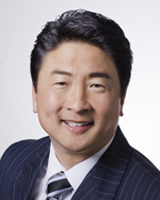Ranked-choice voting could delay Oakland Mayoral race outcome


OAKLAND, Calif. (KGO) -- Voters in Oakland are dealing with a complex system of ranked-choice voting to determine whether Mayor Jean Quan will remain in office or be replaced. It's sort of like an instant run-off.
Ranked-choice allows voters to rank a first, second and third choice as candidate for a single office. That's how Mayor Quan was elected 4 years ago. Quan was an upset victory in the 2010 race when she was declared the winner over former State Senator Don Perata after initial election returns showed him with a 9-point lead in first place voting. She was elected because she had more 2nd and 3rd place votes.
Prior to this, Oakland held a primary in the spring and runoff election in November between top-two vote getters if no candidate won more than 50 percent of the primary vote. The same system is used in San Jose.
At the Rockridge Library, they're expecting to see a rush of voters as they get off of work. They've had about 110 regular voters but they've seen twice as many mail-in voters dropping off their ballots.
That's a sign this could take longer to tabulate the Oakland mayoral race as the estimated 6,000 to 7,000 mail-in ballots trickle in via the U.S. Postal Service. The signatures will have to be verified and then each following day after the election, the ballots are processed through the ranked-choice voting system, which uses a complex algorithm to calculate the results. This will go on until they're finished.
It took three days for the final outcome in the last mayoral election.
"On our last delivery on the votes from the polls, we'll run the vote by mail algorithm probably around midnight and we'll see the first unofficial results of what ranked choice voting is showing," explained Tim Dupuis with the Registrar of Voters.
Some voters still have mixed feelings over rank-choice voting.
"Initially, I thought it was a little weird, then I got to understand it. And in some ways it makes a lot of sense. I just hope my number one choice gets picked, gets voted for," said Oakland voter Freddy Gutierrez.
"It's a challenge. It makes you really have to do your research. You cannot just say I want to go with this person because there is A, B and C. You really have to do your research to see who is the best candidate," said Bruce Johnson, also an Oakland voter.
Some experts think the early results will be a good indicator of who will be the next Mayor of Oakland. Others say the race is too close and those mail-in ballots could change the outcome.
The Registrar expects a 40 to 45 percent turnout, which is typical for midterm elections.
For full election coverage visit our Bay Area Election Results and Voting Guide.













